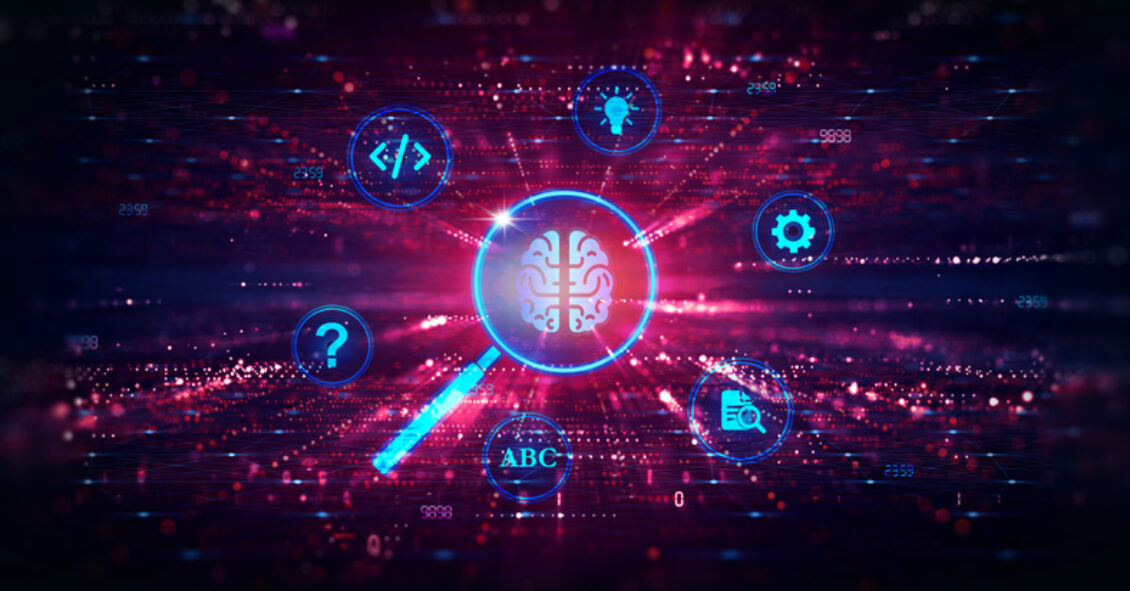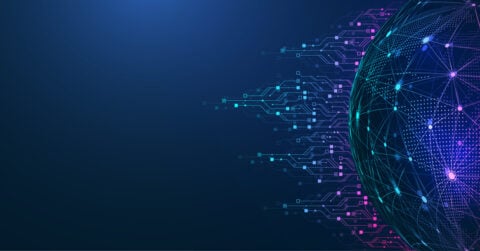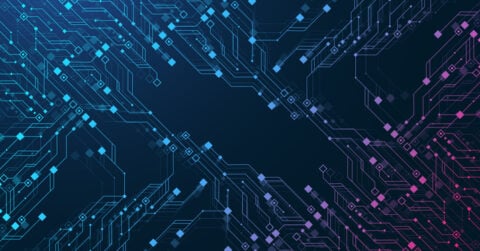
The cybersecurity landscape is evolving rapidly, driven not only by an ever-growing volume of threats, but also by the emergence of sophisticated technologies. Among these, artificial intelligence (AI) agents have begun to reshape how enterprises detect, respond to, and even prevent security breaches.
In this blog, we explore what AI agents in cybersecurity are, their impact on the cybersecurity market, recent developments in this space, future potential, and how both service providers and enterprises should strategically approach their adoption.
Reach out to discuss this topic in depth.
What are AI agents in cybersecurity and how can they impact the cybersecurity market?
At their core, AI agents are autonomous, intelligent systems that perform decision-making tasks, often using advanced machine learning and Large Language Models (LLMs). Unlike traditional, rule-based security tools, these agents operate independently to sift through vast amounts of data, automatically detect anomalies, and take action in real time and are often broadly covered under ‘Systems of Action’.
As a prominent example, NVIDIA’s “Agent Morpheus” leverages generative AI (gen AI) not just to identify vulnerabilities from a Common Vulnerabilities and Exposures (CVE) database but to conduct deeper analyses by generating context-specific checklists and evaluating exploitability. This evolution allows security teams to focus on high-priority threats instead of spending countless hours on tedious manual reviews.
Similarly, as another relevant example, Microsoft’s Security Copilot Agents enhance incident response by offering real-time data insights and automated recommendations. They are designed for the same goal, reducing the manual overhead on security teams, shortening the time needed to identify and respond to security incidents. Additionally, our research on agentic AI for cybersecurity outlines key use cases in threat hunting, risk identification, and even automated penetration testing, showing the breadth of potential applications in the cybersecurity domain.
The impact of AI agents in cybersecurity market is also profound. They promise to drastically improve operational efficiency, reduce false positives, and even help predict emerging threats. As cyberattacks become more sophisticated, AI agents ensure that security operations evolve from reactive approaches to proactive threat mitigation, thus shifting the balance in favor of defenders.
What has happened so far – The AI agents’ journey in cybersecurity
Recent years have witnessed significant developments in the deployment of AI agents in cybersecurity. Major industry players have invested heavily in this space, marking a turning point in how enterprises approach threat detection and response.
- Microsoft’s strategic investments
Microsoft has been at the forefront, unveiling Security Copilot Agents that integrate seamlessly with its broader security ecosystem. These agents not only process high volumes of threat data in real time but are also equipped with new protections designed specifically for securing AI systems. By automating routine tasks and providing actionable insights, Microsoft is setting a benchmark for future hybrid security models that combine human expertise with AI efficiencies
- NVIDIA’s breakthrough with Agent Morpheus
On the other hand, NVIDIA’s Agent Morpheus demonstrates how generative AI can be harnessed for CVE analysis at enterprise scale. With the ability to rapidly process large container scans and determine the true exploitability of vulnerabilities, Agent Morpheus has redefined the scope of automated vulnerability management. Its integration of Retrieval-Augmented Generation (RAG) with multiple specialized LLMs offers a glimpse into a future where complex cybersecurity tasks that once took hours or days are completed in seconds
- Startup funding and market Momentum
The growing market interest is evident from substantial startup investments. As a recent biggest highlight from the news, companies like Exaforce are securing significant funding to develop AI-driven Security Operations Center (SOC) enhancements. These startups focus on AI agents capable of automating incident response and reducing alert fatigue, aiming to transform traditional SOC models. Such funding rounds not only boost innovation but also validate the industry’s belief in AI agents as essential tools for modern cybersecurity
- Additional industry movements
In addition to the investments by Microsoft and NVIDIA, several other industry giants have been actively advancing AI agent–led security solutions. For instance, CrowdStrike’s Falcon platform leverages sophisticated AI to automate threat detection and response. Palo Alto Networks has integrated AI across its Cortex XDR ecosystem. Cisco’s SecureX employs AI-driven analytics to detect anomalies and orchestrate threat remediation. IBM Security incorporates cognitive computing into QRadar and Watson for cybersecurity, offering deep insights and automated incident response. Likewise, McAfee, Trellix, and Trend Micro are all investing in agentic AI technologies that streamline security operations and reduce the Mean Time to Detect (MTTD) and mitigate emerging threats. These varied initiatives underscore a broader industry commitment to harnessing intelligent agents, ultimately paving the way for more agile, efficient, and comprehensive cybersecurity defenses
What does the future of AI agents hold?
Looking ahead, the future of AI agents in cybersecurity is poised to be transformative. The technology is advancing rapidly, and several trends indicate the direction of future deployments:
- Increased autonomy and proactive defense
AI agents will evolve to become more self-reliant and intelligent. Future systems will not only detect and respond to incidents but will also predict vulnerabilities by learning from past patterns. With continuous learning and integration of real-time threat intelligence, these agents could preemptively fortify systems before an attack materializes
- Greater integration and standardization
As AI agents mature, there will be a push towards standardized frameworks for AI-driven threat detection and response. This standardization could lead to greater collaboration among vendors, smoother integrations with existing cybersecurity tools, and universal protocols for assessing AI agent performance
- Expanded use cases beyond SOC operations
Current trends show AI agents being used in triage and incident response, but the future will likely see their application expand into more complex areas such as automated forensic analysis and risk prediction. Innovative use cases may include adaptive pentesting, where AI dynamically simulates potential attack scenarios, and real-time compliance monitoring across cloud environments
- Regulatory and governance developments
As the role of AI in critical security functions grows, we can expect regulatory bodies to introduce guidelines governing the use and security of AI agents. This will spur the development of robust audit trails, transparency mechanisms, and frameworks for AI agent governance, ensuring that these systems are accountable and trustworthy
Threat or opportunity for service providers?
For service providers, the advent of AI agents in cybersecurity represents a significant opportunity rather than a threat. While there is a natural concern that increased automation might disrupt existing service models, AI agents can empower service providers to deliver more efficient, scalable, and cost-effective security solutions.
- Opportunity for enhanced service offerings
Service providers can leverage AI agents to enhance their existing portfolios. By integrating AI-driven processes, they can offer real-time threat detection, rapid incident response, and continuous risk assessment. This not only improves operational efficiency but also provides a competitive edge in the market
- Focus on AI agent governance and audits
With the increasing reliance on AI, there will be a strong demand for robust governance and auditing frameworks. Service providers can carve out a niche by offering AI agent audits, ensuring that these systems are secure, transparent, and compliant with industry standards. Just as enterprises are increasingly focusing on securing machine identities, ensuring the integrity and accountability of AI agents is poised to become a critical area
- New revenue streams and consulting opportunities
There is an immense potential for developing consulting services around the secure adoption, ongoing monitoring, and auditing of AI agents. Providers that specialize in AI governance can assist organizations in deploying these technologies securely, performing regular audits, and aligning the systems with evolving regulatory requirements
Ultimately, instead of viewing AI agents as a disruptive threat, service providers should see them as a catalyst to drive innovation, improve service delivery, and open up new avenues for revenue generation.
How should enterprises look at AI agents and securely adopt them?
For enterprises, the strategic adoption of AI agents requires a balanced approach that considers both the immense benefits and the unique security challenges inherent to these systems.
- Ensure robust machine identity management
Drawing lessons from leading Identity and Access Management (IAM) providers’ commentary on securing machine identities, enterprises must focus on establishing strict controls over AI agent identities. Secure identity management ensures that AI agents are authenticated, authorized, and continuously monitored. This prevents unauthorized access and reduces the risk of exploitation
- Integrate AI agents with existing security frameworks
Enterprises should adopt AI agents as part of a broader, integrated security strategy. This means aligning AI-driven processes with existing Security Information and Event Management (SIEM) systems, threat intelligence platforms, and incident response protocols. Such integration will not only enhance overall security but will also provide a unified view of the security landscape
- Implement AI agent governance and audit mechanisms
To tackle the “black box” challenge often associated with AI, enterprises need to establish governance frameworks that provide transparency into AI decision-making processes. Regular audits of AI agent performance, along with clear reporting and accountability measures, will build trust in the technology and ensure compliance with industry and regulatory standards
- Educate and train security teams
Adopting AI agents is not a plug-in-and-play solution. Enterprises must invest in training their security teams to work effectively alongside AI systems. This includes learning how to interpret AI-generated reports, manage exceptions, and understand when human intervention is needed. Continuous education will help bridge the gap between human expertise and automated processes
- Plan for continuous improvement
As adversaries evolve, so must your security mechanisms. Enterprises should implement feedback loops where the performance of AI agents is regularly evaluated, and insights from human analysts are used to refine AI models. This ensures that the agents become more effective over time and adapt to emerging threats
The present and the future?
AI agents are poised to redefine the cybersecurity landscape. From revolutionizing threat detection and incident response to enabling proactive defenses, the integration of AI agents represents a significant leap forward in addressing the complexity of modern cyber threats.
Major players like Microsoft, Palo Alto Networks, IBM, Google Security, and NVIDIA are leading the charge with substantial investments and innovative solutions, while startups are fueling the momentum with fresh and agile approaches.
For service providers, these developments are an opportunity to enhance offerings and carve out new revenue streams through AI agent governance and audit services. For enterprises, a secure and strategic approach to AI agent adoption, rooted in robust identity management, seamless integration, and continuous improvement, will be key to harnessing the full potential of these transformative tools.
As we look to the future, the continued evolution of AI agents promises not only to bolster cybersecurity but also to drive industry-wide innovation. The challenge now is to ensure that these powerful tools are implemented securely and responsibly, laying the foundation for a safer digital world.
If you found this blog interesting, please check out Five Cybersecurity Predictions That’ll Shape The Services Industry In 2025 | Blog – Everest Group, which delves deeper into another topic regarding cybersecurity.
If you have any further questions about AI agents in cybersecurity and other future trends, please contact Arjun Chauhan ([email protected]).










